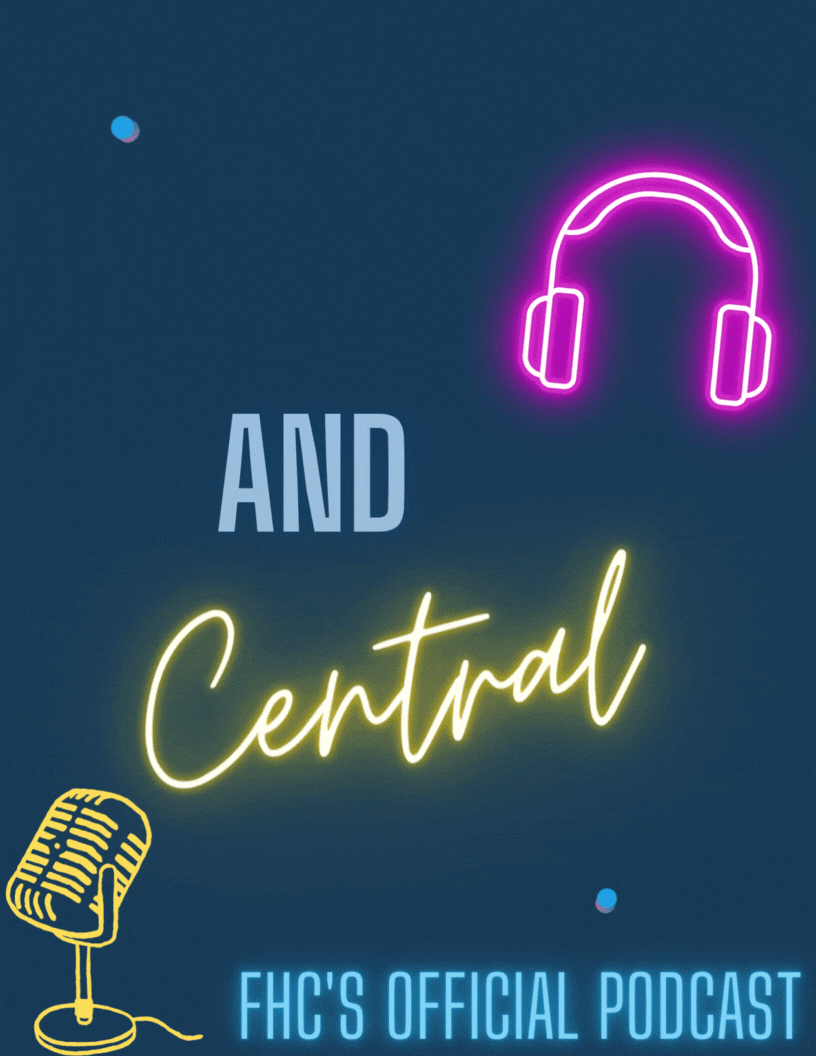As an AP student, naturally I have a very specific regimen that must be meticulously carried out in order to prepare myself for such rigorous tests. This process does not involve the reviewing of extensive study guides full of course material, nor is it comprised of hours spent creating and flipping through hundreds of detailed flashcards. No, my tactics vary greatly from what may be recommended by my teachers or the College Board.
All I do on the morning of the test is put on some Kanye and let one of the most infamous celebrities of the last few years serenade me with lines dripping with condescension. We spit the rhymes in perfect synchrony, him pumping up his already soaring ego, me boosting my own confidence that I can devastate the AP Psychology exam and that puedo destruir el examen de AP Español. We sing of power, money, women. We sing of people we’ve left behind, goals we’ve achieved, and dreams we continue to pursue. We rule the world for three minutes at a time, pausing only for a moment in between songs to catch our breath.
We are supported by grandiose instrumentals featuring elegant string sections and boisterous horns. We momentarily share the spotlight with countless other artists like Jay-Z and Nicki Minaj, only to reclaim it as ours and ours alone. No one can touch us as we ride low around St. Charles County in my ‘94 Chrysler LeBaron. It’s quite a sight.
I understand why people hate rap music, I really do. To most, it is comprised of nothing but lines that degrade women and deem sex, drugs, and money the most important aspects of life. The use of autotune is excessive and the beats are stale. But if we only listen to the music that made it through marketability filters implemented by MTV, radio stations, and DJs, we miss out on so much music that actually has technical and lyrical merit. Just like One Direction, Justin Bieber, and Lady Gaga are the only three artists in rotation on the pop radio stations, so much of rap doesn’t get air time because it lacks commercial appeal. Yet if you seek out quality hip-hop, you will find a diverse collection of music that spans decades.
I know, I’m a teenage white suburbanite gal, what do I know about hip-hop? I know what sounds good, and I know what makes me feel good. Isn’t that the purpose of music? We listen in order to feel a certain way or to have certain thoughts stimulated in our minds. A common complaint against rap music is that the artists are essentially just bragging about their selves, how much money they have and how many women they’ve been with. They are contemptibly boastful, and with no real reason.
Yet I find myself able to harness this attitude, this notion that I am “the best living or dead hands down.” Walking into a college interview with people from Harvard, Princeton, or Yale, you better have confidence. You better think you deserve to go to some of the top universities in the country more than the other hundreds of thousands of “top of their class” kids that are also in competition for the precious spots. If you don’t convince yourself that you deserve to go, you certainly won’t be able to convince Harvard graduates.
While this is a common attitude in some rap music, not all artists share this perspective. Tyler, the Creator, the 22-year-old co-founder of hip hop collective Odd Future (short for Odd Future Wolf Gang Kill Them All, abbreviated OFWGKTA), is another hip hop artist who frequently comes under fire by the media for his “homophobic slurs” and countless other offenses.
As the president of our school’s Gay Straight Alliance, one might believe that I would instantly shun any artist who uses such derogatory terms for homosexuals, yet, somehow, I find it easy to look past the frequent “f bombs” dropped in his music. This is primarily due to the fact that he uses such stigmatized words in a way that has no pertinence to their actual definitions; when he calls his dad a very offensive word reserved for those wishing to degrade homosexuals, there is no homophobic context whatsoever. I’m not saying it’s acceptable to use such words, but I would certainly hesitate to eradicate him from my listening library due to his supposed homophobic nature. He has said publicly that he is not homophobic in any way, and in my opinion, his use of such powerful words is merely because he has powerful feelings. I can appreciate that.
Tyler’s previous release, “Goblin,” was full of dark themes and angry lyrics, yet he appears to have mellowed out for his latest, “Wolf.” While the beats have matured, the lyrics have taken a turn to portray a simpler time, one where Tyler’s greatest loves are his bike and girls with freckles. Some songs are a bit heavier, in which Tyler berates his father for not being around, or pokes fun at the media who never leaves him alone, yet in comparison to his previous release, “Wolf” is an optimistic ode to simple pleasures. In listening through some of the tracks like “Awkward” and “Treehome95,” you can almost feel the cool, satisfying breeze that fleetingly slips past you on a summer’s day. Tyler’s laidback approach to this album enabled him to convey ideas that are a bit more relatable than his “booty-popping, drug-smoking, money-hoarding” contemporaries, and the 2013 release will perfectly accompany the sunny days and refreshingly cool nights of summer.
So much of the appeal of rap comes from the lyrics, whether they are caked with pomposity or stripped down to simplicity, yet perhaps more important are the beats. From composing original beats to snagging samples, hip hop artists and producers have a wide range of tools at their disposal, yet so many take this freedom for granted. One hip hop duo, Madvillain, consisting of MC/producers MF DOOM and Madlib, takes full advantage of the freedom afforded to them by an age of archives and electronics. Take a single listen through their critically-acclaimed 2004 release “Madvillainy” and you can probably pick out audio clips from video games, movies, and music you may have heard over the years. With sources ranging from the classic arcade game “Street Fighter II” to contemporary composer Steve Reich, “Madvillainy” derives its beats from a vast and diverse collection of audio samples, mixing and producing them all together to create Rhapsody’s #1 Hip-Hop Album of the Decade, and Pitchfork’s #13 Top Album of 2000-2004. Aside from critical acclaim, “Madvillainy” is simply a joy to listen to. MF DOOM differs from other rappers in his cool, relaxed delivery of bizarre lyrics such as these from their song “Rhinestone Cowboy”: “Watch the droptop papi / Known as the grimey, limey, slimy, try me, blimey / Simply smashing in a fashion that’s timely.” It doesn’t have to make sense to sound good, and with crackling, nostalgia-provoking samples and laidback rhymes, it certainly does sound good. A 2013 release from the duo has been rumored since September, so be on the lookout for some fresh madness.
I’d love to hear what you think of these artists and get some of your recommendations. Email me at sweeeeeens@gmail.com, or tweet at @sweeeeeens. Thanks for reading!





